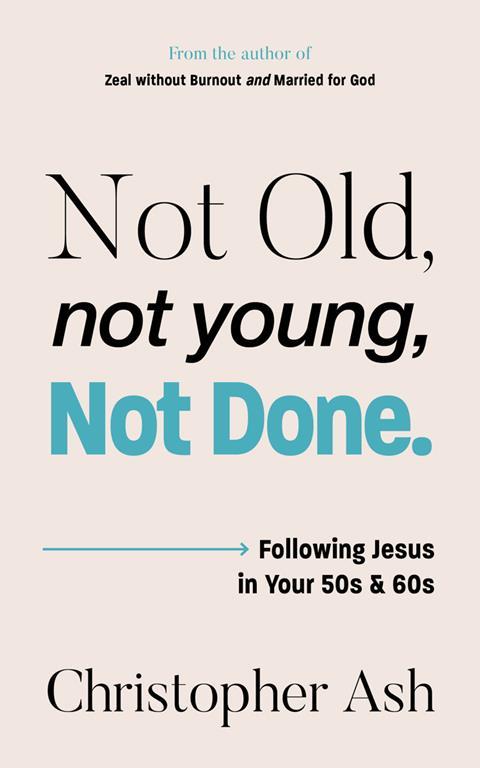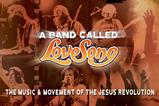Christopher Ash’s latest book offers guidance, encouragement – and a few strong opinions – for navigating the “afternoon” of life with faith, wisdom and purpose

Christopher Ash – preacher, pastor, teacher and writer – explains that this is the book he wishes someone had handed him at 50.
While there are plenty of resources for teenagers, singles, newlyweds, new parents, and even those approaching death, there’s surprisingly little written for those in the “afternoon” of life.
He’s writing for a generation whose lives can look wildly different. Some may be empty nesters, financially comfortable and loving their newfound freedom, while others are juggling troubled teens and ageing parents who need constant care. Some are facing health challenges of their own; others are still running marathons. So how do you write for readers whose circumstances are so varied?
Ash begins with the heart – something shared by everyone entering this stage of life, which he says holds both “spiritual danger and spiritual opportunity,” depending on how we approach our faith. He encourages readers to pursue a pure heart and to seek wisdom with intention.
Another universal experience, Ash notes, is coming to terms with ageing bodies – though the connection he draws with Adam’s sin feels like a bit of a stretch. After admitting that “too many serves and smashes” took a toll on his wrists, he write: “ultimately I had to give up tennis because of sin. It would be good if we began to weave this kind of talk into our Christian conversations.”
At times, Ash can come across as a little insensitive to real emotions, such as when, despite offering some contextual groundwork, he tells single people in this age group: “You have no need to envy anything—anything!—that married friends may have now.” Still, for the most part, his advice remains conventionally scriptural.
Ash addresses issues specific to this generation – like being caught in the “sandwich” between ageing parents and struggling children
His reflections on honouring older parents are both scriptural and wide–ranging, yet remain succinct and practical. He encourages readers to keep making new memories, stand against assisted suicide, and to live sacrificially – while also being realistic about what kind of support is actually sustainable.
Ash suggests that we can make this stage of life easier for our own children by gradually clearing out our clutter, rather than leaving them to sort through it once we’re gone.

He’s also back on track when reflecting on how age can bring fresh perspective – a renewed appreciation for creation and a sense of wonder we may have taken for granted in earlier years. And as we look ahead to the promise of new creation, he reminds us that hope remains vital: “a brightness in the eyes of our hearts that can speak to a world in which hope is so hard to find.”
He encourages us to use any freed–up time for the sake of the gospel and gives the examples of supporting a new project with our money or prayers, considering a moving home, as well as developing friendships that can lead to personal evangelism.
When addressing married couples about supporting single friends, Ash writes: “There will be opportunities to provide companionship for single friends and point them to Jesus.” But adding that last phrase feels unnecessary. Isn’t offering genuine companionship a Christian act in itself? This tendency to justify everything on overtly ‘spiritual’ grounds shows up in places throughout the book.
This somewhat utilitarian view of relationships surfaces again in an otherwise healthy chapter on passing the baton of faith to younger generations. On YouTube, Ash comes across as warm and engaging, but on the page he can feel a little less personable.
Because Ash covers a lot of ground quickly, he deals with several whole–life matters: prayer, resisting temptation, cultivating thankfulness, building friendships, guarding our identity in Christ, and what some would call “sanctified common sense.” In this respect, many “afternooners” may already have books or resources covering these areas – which perhaps explains the scarcity of titles aimed specifically at this life stage.
The target readership for this work will also tend to have a more nuanced faith than when they were younger; not necessarily because of slowing down in their dedication, but because they have experienced more of life and developed a wider understanding of their faith. To its credit, Ash’s book has many ‘checklist’ points to offer up your faith against, but its lack of subtlety and narrow theological approach will put some people off in places.
So while it comes from a good heart, offers many thoughtful approaches and is highly scriptural, it is a book that I could only recommend with caveats.
Not Old, Not Young, Not Done: Following Jesus in your 50s and 60s by Christopher Ash is out now







































No comments yet